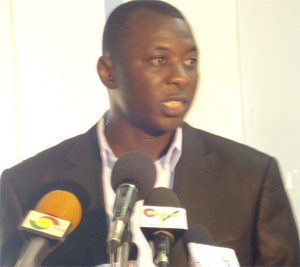Dr Mohammed Amin Adam, Executive Director of Africa Centre for Energy Policy, says the distribution of the country’s oil revenue has discriminated against the poorest regions in the country and called for even distribution.
He said the law governing the petroleum management revenue requires the nation to distribute and allocate the oil revenue evenly and balanced saying: “The Northern, Upper East, Upper West and the Central regions which are the poorest in the country received less of the oil revenue since 2011.”
“The Upper West received one per cent while the Northern, Upper East and Central regions each received five per cent of the total oil revenues from 2011 to 2013,” he said.
Dr Adam was speaking in Tamale on Friday during a regional consultative forum organised by the Northern Network for Education Development and funded by Ibis, a non-governmental organisation.
The forum was on the theme: “Repositioning education financing on goods and services and assets through increased 2016 Annual Budget Funding Amount funding and disbursement for education sector” and brought together diverse participants to brainstorm on oil revenue allocation to education.
Dr Adam said education is associated with high social returns and therefore requires qualitative capital spending in order to regain the full benefits to the human resources.
He said because of the little revenues received for these regions, very few projects could be done with the money.
He said even though the total oil revenue contributions to the Gross Domestic Product was just 1.3 per cent, allocations to the education sector is still very low and appealed to the Ministry of Finance to allocate more funding to education in 2016 budget.
He indicated that out of the total sum revenue allocated to the education sector, 75 per cent was spent on wages and salaries; a situation he said does not enhance educational development.
Dr Adam noted that countries such as Trinidad and Tobago spends 70 per cent f their oil revenue in education while Brazil spends about 60 per cent.
He explained that based on the huge expenditure these countries spend in education, it has translated into high literacy rate and improved health systems and suggested the need for Ghana to do similar.
Dr Adam expressed the need for Ghana to do priority spending such that the country would avoid tin distribution where projects would not be left uncompleted saying ‘If the allocations are done in tin distribution, it increases the cost of production over a period of time”.
Alhaji Mohammed Haroon, Northern Regional Director of Education noted that the current system of democratisation in educational policies is good but must be scaled-up to ensure that the country benefit’s fully.
Click to view details



Business News of Saturday, 15 August 2015
Source: GNA
Distribution of oil deprives poorest regions – ACEP boss
Entertainment
















